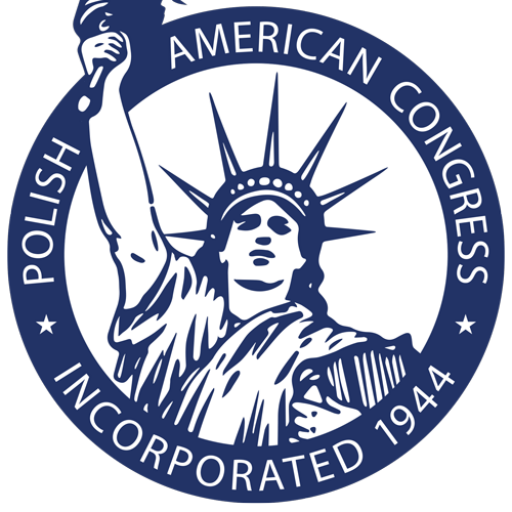On June 12, 2020, Ukraine received the status of Enhanced Opportunities Partner (EOP) of the North Atlantic Treaty Organization (NATO). Five other countries: Australia, Finland, Sweden, Georgia, and Jordan have this status. As a NATO EOP, Ukraine will have access to interoperability programs and exercises. The goal of interoperability for all NATO armed forces national contingents to fight together as a unit, rather than alongside each other. Interoperability enhances deterrence thereby making war less likely.
Ukraine is Poland’s largest and most populous eastern neighbor. Both countries border on the Russian Federation. Ukraine has a long border; Poland has a short border with Kaliningrad Oblast. The independence of both countries repeatedly has been threatened by Putin’s Kremlin. Aleksander Dugin, Putin’s favorite ideologue, warned Poland that Warsaw will be incinerated with nuclear weapons if Poland continues to challenge Russian revanchism. In flagrant violation of the United Nations Organization Charter, Russia has used armed force to change internationally recognized borders by amputating territory from both Georgia (Abkhazia and South Ossetia) and Ukraine (Crimea). A clear path to NATO membership should be open for both Georgia and Ukraine in order to deter further Kremlin aggression.
Other NATO member nations are enthusiastic about closely working together with Ukraine. After having received EOP status, Ukraine is one step closer to joining NATO. President Volodymyr Zelensky is very optimistic about Ukraine joining NATO in the near future. Ukraine signed a partnership agreement with NATO in 1997, three years after the enactment, on December 5, 1994, of the Budapest Memorandum on Security Assurances, wherein the Russian Federation, the United Kingdom, and the United States guaranteed the independence and territorial integrity of Ukraine after Kiev decommissioned its nuclear arsenal. Ukraine–NATO membership talks started in 2005. Today, after the Russian annexation of Crimea in 2014, and the Kremlin orchestrated war in Donbas, it is high time for Ukraine to accede to NATO, because the security assurances of the Budapest Memorandum are worthless. Several countries drew the lesson that it is imprudent to give up their nuclear arsenals in return for assurances of independence and security guaranteed by the United States and the United Kingdom.
Ukraine has largely fulfilled the requirements for NATO membership by enacting reforms on peace-support operations, defense and security sector improvements, defense technology, and other projects which should help Ukraine to strengthen its ability to defend its national territory should a conflict with Russia occur. In 2018, the United States Ambassador to NATO, Kay Bailey Hutchison, supported a path to NATO membership for Ukraine and Georgia. In her opinion, it is better to have them as an ally than an opponent. From a different point-of-view, the United States and the United Kingdom should smooth the way for Ukraine in order to redress the hollow guarantees of the Budapest Memorandum.
In 2018 Ukraine spent 3.8 percent of its gross domestic product on defense where requirement by NATO is 2 percent which means that Ukraine meets that requirement, but there are still some other domestic political reforms which remain to be implemented for Ukraine to meet NATO requirements. One of the conditions of NATO membership is that the candidate country must have good relations with all member countries of the alliance. Today, Ukraine has difficult political relations with Hungary which is a member of NATO. Nevertheless, Ukraine is determined to become a member of NATO. Moreover, Ukraine sent troops to Afghanistan in 2014 and to Iraq in 2011. Poland followed a similar strategy in the past by participating in the American mission in Iraq during Gulf War I and in the Partnership for Peace Program. This helps to explain why in 1999 the Clinton Administration approved the accession of Poland to NATO. Hungary and the Czech Republic also acceded to NATO in that first enlargement of the alliance in 1999. Ukraine wants to follow a similar path. Ukraine has been showing compelling evidence of progress in meeting the conditions of NATO membership.
The present political context is informed by the Russian democratic movement now challenging Putin’s autocracy. This may persuade the Kremlin to launch wars against Georgia, or Ukraine, or Moldova in order to derail this domestic political challenge. This is why the accession of Georgia and Ukraine to NATO is urgent.
by PAC Intern Paulina Rezendes
Are you interested in exploring this topic further? Would you like to support the advocacy work of the Polish American Congress? Please donate by clicking below:
 Paulina is a junior majoring in International Relations with a minor in Political Science at Loyola Marymount University.
Paulina is a junior majoring in International Relations with a minor in Political Science at Loyola Marymount University.
